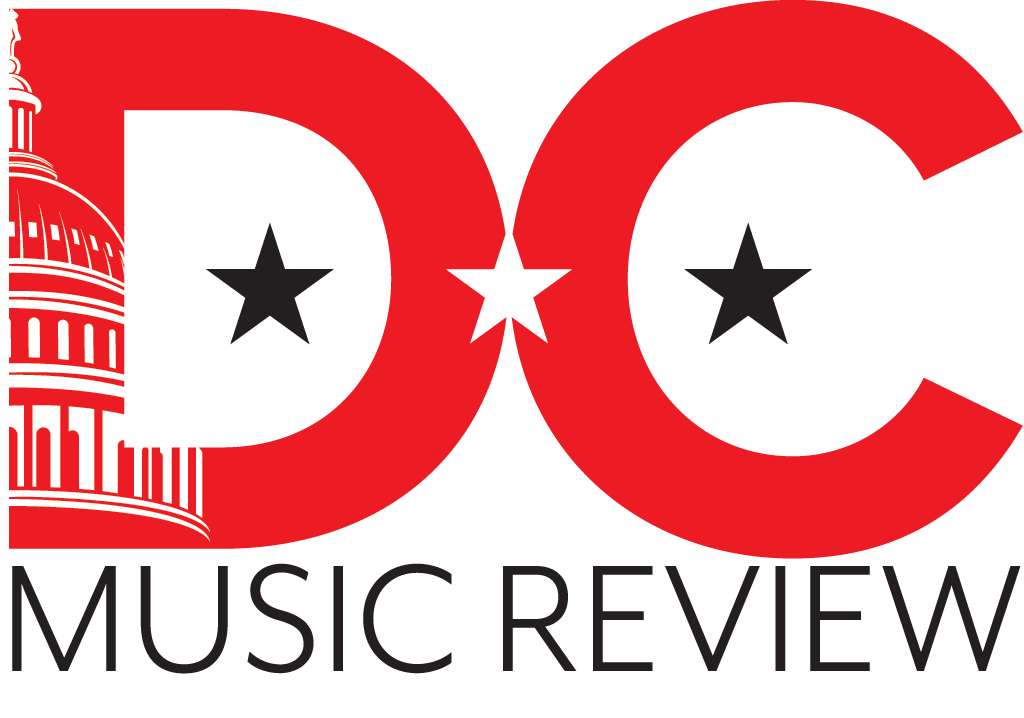A day before he was to play at the Big Sky Music Festival as well as celebrate his birthday in style, Sam Bush talked to us about his own musical influences as well as being one himself and how everything comes full circle. In preparation for Delfest, the following is one of the interviews with artists that will be playing there Memorial Day weekend. Keep your eye out for more to come with the musicians on their lineup and make sure you get your tickets to head out to the Alleghany mountains for a great time!
Karin McLaughlin: Let's start at the beginning. I was doing some reading and you come from a musical family, your father was a fiddler. You also note that Ricky Skaggs is an early inspiration for you and that was what led you to the instrument that you play, but it also says that your dad was a big record collector and that was a musical influence in your life. Are there any specific vinyl albums or artists that sparked the music love earlier than Ricky Skaggs?
Sam Bush: Well, both my parents really loved music and my dad played the fiddle and strummed on a mandolin and my mom played some guitar. Growing up in a household that encouraged music was, of course, an advantage that I didn't realize I had. My dad had records and the records that he would like to play around the house were fiddle instrumental albums. By album, I mean that they were literally five 78 records in a jacket with five sleeves and it was like a photo album. One of the records that he loved to listen to was a fiddle album by Roy Acuff and the fiddle player on that album was actually Tommy Magness.
Another one that he had that caught my ear more, was a fiddle album, again in the five 78 package and was by Tommy Jackson. Tommy Jackson became sort of the sound of the fiddle and country music in the 60s and the music coming out of Nashville on record. Tommy would play these fiddle tunes and they made them to play for people at dances. In other words, they made two versions of the album - one would be called Square Dances by Tommy Jackson, and then another version of the record would be called Square Dances With Calls. So on the record they would have a square dance caller telling the dance patterns for the change. Well, my dad of course got them without calls, he didn't want to hear that (laughs). So we listened to the Tommy Jackson records and that piqued my interest. One of the things that I liked about the Tommy Jackson's fiddle albums were that they featured a mandolin player playing the melodies in unison along with Tommy.
Later, I was to find out that the mandolin was played by the great jazz guitar player Hank Garland and that Hank was such a great musician, he could just take a mandolin right before they recorded and be taught the song on it. So I literally grew up copying a person that didn't really play the mandolin, but he was great. The way he would play exactly what fiddle notes Tommy played, that's a way that bluegrass mandolin players weren't approaching it then, so I really learned about this fiddle tune approach for both the fiddle and mandolin early. Hearing the sound and loving it led me to further explore that.
Growing up around Nashville, Tennessee by being in Bowling Green, Kentucky only 55 miles north, we had the advantage of seeing some of these Grand Ole Opry performers and mandolin players on local TV in Nashville. Through that, I sort of started realizing, 'Oh I want to play like those guys!' Even though we knew of him around Bowling Green. as we had a small TV station that the Skaggs family would play on, I knew young Ricky Skaggs and he's couple years younger than me, before I started playing. I guess it was when I was watching the Flat and Scruggs show one Saturday afternoon and a youngster came on and wanted to play the mandolin with Flat and Scruggs and of course I knew that was a little Ricky Skaggs, I knew who he was and I just thought that was the greatest thing I ever saw. I wanted to do the same thing
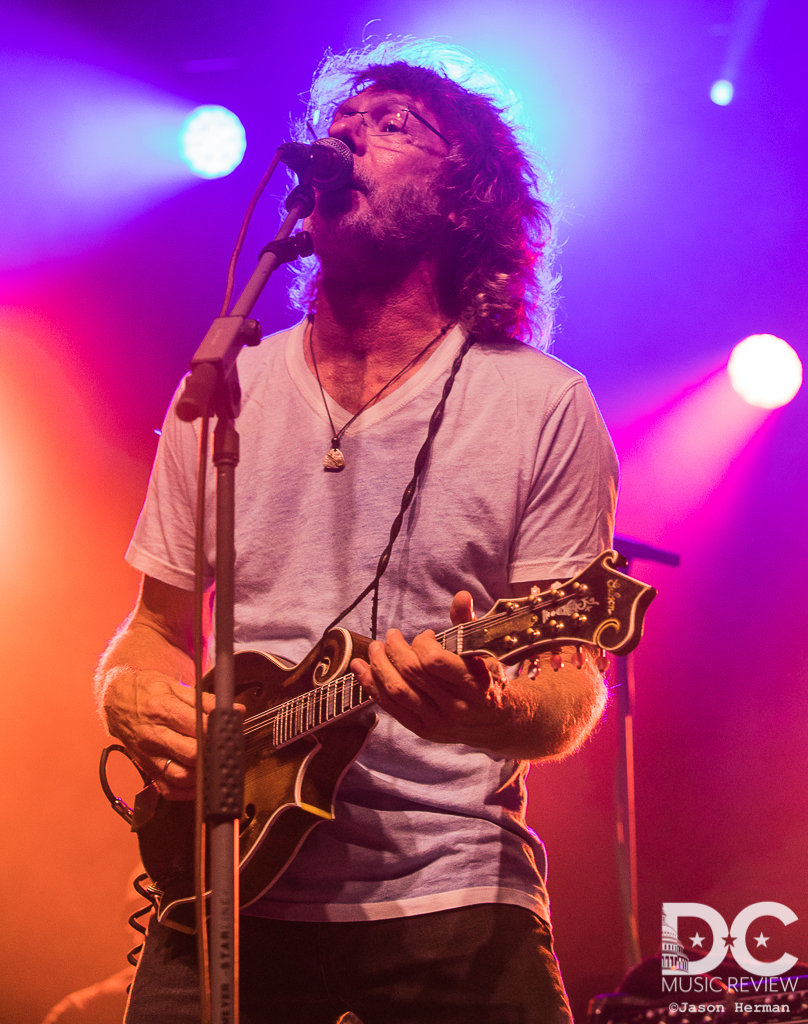
KM: It's also funny note that you learned or you were inspired to play the mandolin from someone who didn't play the mandolin. So the whole term new grass or progressive bluegrass, what does that mean to you?
SB: Well it's funny because our band, New Grass Revival, I always called it The Revival and it seems like everyone else called it New Grass. Then, over a period of time, all of a sudden this word new grass starts being a thing as a style of music. What we always thought of it as, was just this simple playing of contemporary music on traditional bluegrass instruments. In other words, you've learned to write your own tunes and, of course, the subject matter of the songs can't help but change.
I am one of the few people I know - me and Del McCoury and maybe The Gibson Brothers - that grew up on a farm. So when you think back to the early days of bluegrass, many of the performers came from rural settings and so their subject matter was about their settings. Many a song is about missing your parents and the little cabin you grew up in in the hills. That was just bound to change. If there hadn't been an influence of, in my opinion, Northeast musicians and other musicians taking on youngsters and the college-aged guys taking on bluegrass, I don't know if it would have it would have survived the 60's.

That was when people start writing their own tunes and making their own music just like our forefathers in bluegrass did. We just had different subject matter and things to talk about and so we had the advantage of learning from them. There's a different twist that people like me and David Grisman would put on acoustic music. Now, you have - I hesitate to use the word youngsters, but - young musicians that maybe didn't see Bill Monroe like I grew up seeing him or maybe they didn't ever see Jesse McReynolds play like I got to see him, but they saw David Grisman and they saw me. So now you have a wide thing that is influenced by different styles and people and what I love about this is that now we have these young players that are loving the progressive side of acoustic music. We've certainly seen young musicians that want to play the traditional bluegrass as well so it's good that they can all be involved in it.
KM: There's two sides to that coin where you guys started playing this new style of bluegrass where you attracted a lot of people, but I read that you were shunned by traditionalists for quite a while and they were wary and afraid of something new. How long did it take until you noticed that that started to change and they finally started to accept more of the new style of music that you guys were playing and to respect it in a whole new way?
SB: Just the fact that we hung in there. I think there was sometimes a delineation in the audience where the audience would only like the old time bluegrass and they weren't going to open their mind to this "new bluegrass". The musicians themselves were always incredibly welcoming to us and New Grass Revival.
Thinking back to the early 70's, when they were trying to get it going, there were certainly the Bill Monroe type of festivals that were all very traditional but there was another promoter, Carlton Haney who started The Roanoke Bluegrass Festival in 1965, which I was actually there for, and that was the first multi-day bluegrass festival. You'd also have, people called them 'peace, love and bluegrass festivals' (laughs) and it would feature certain bluegrass entertainers but also New Grass Revival and bands like Goose Creek Symphony or the New Riders of the Purple Sage, and The Nitty Gritty Dirt Band.
By the mid- 80's Bill Monroe was a festival promoter himself hiring New Grass Revival and I've often wondered as when we started working for Bill, if the traditional audience didn't also realize, 'Well I guess if Bill likes them, they must be okay.' So I've wondered if that didn't help that audience come around.
That's always a battle in all forms of music, I mean I was fascinated a few years ago there was a reprint of old stories where you had, I mean even Miles Davis would say that Dave Brubeck can't play jazz. Some people in rock and roll would never call the Beatles rock and roll because they were too hung up on Chuck Berry and Jerry Lee Lewis. It's really interesting to me watching how people hold on to traditions in music. Those traditions aren't going away. There's nothing to be frightened about.
KM: Right and now you've got festivals, I mean tons of different festivals with all these traditional and non-traditional genres. Perfect point as we gear up for Delfest, where you've got almost every style within the bluegrass genre there is - you've got jam grass, you've got new grass, old school traditional you have basically everything and it comes together. Personally, Delfest is where I fell in love with bluegrass really.
SB: Well then they've achieved their goal (laughs).
KM: They 1,000% have!
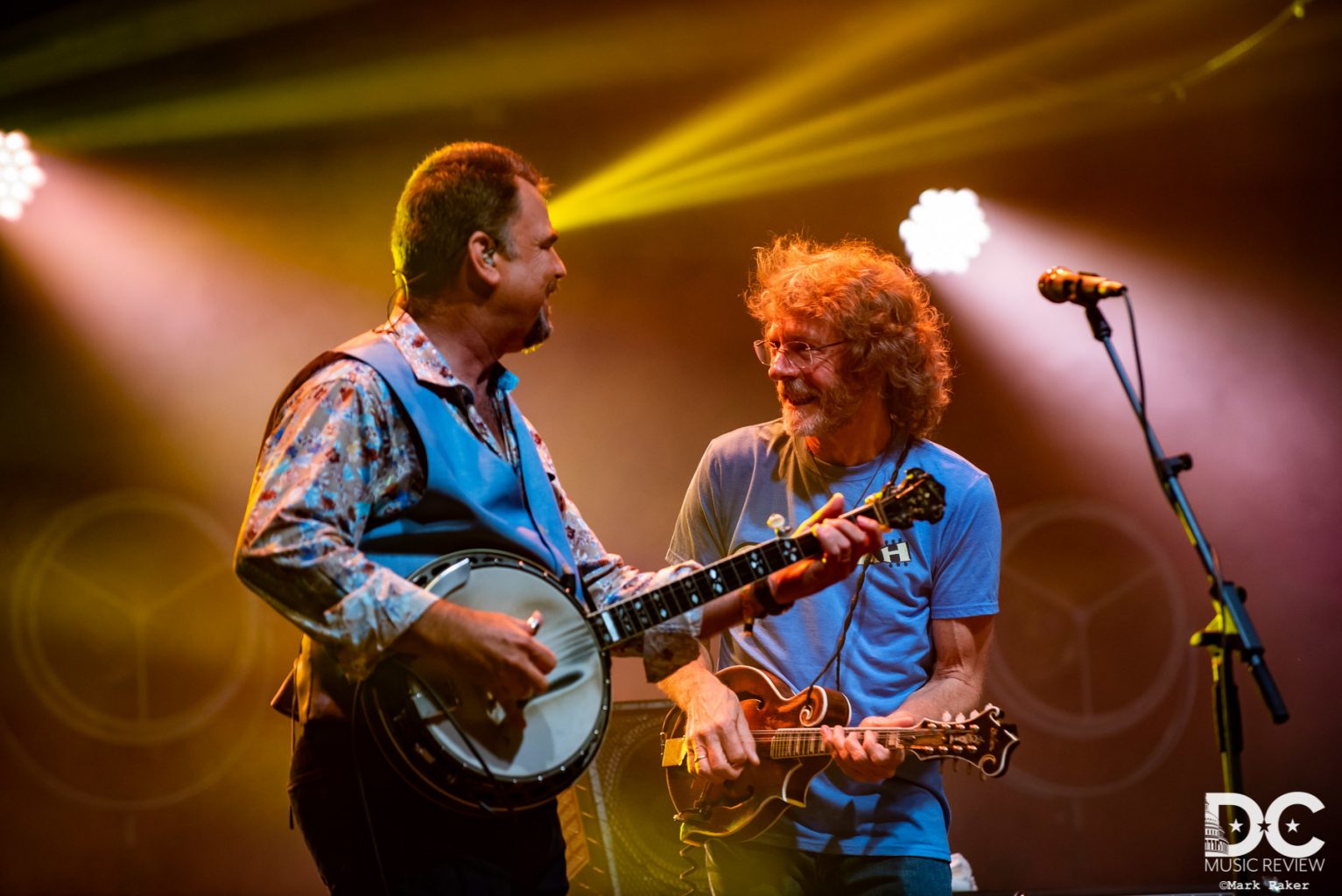
KM: I want to talk about what's so special about Delfest in that respect. Not only do you have Del, who is obviously the man of the festival, but everybody from Ricky Skaggs who's played there, you've played there several times and you're playing there again this year - Greensky (Bluegrass), Yonder (Mountain String Band), Bill Monroe, pretty much everybody that could have been an influence and a player in that game has at some point played at Delfest. It's such a generally good time and in all the years I've gone, I've never seen any fights, any disrespect, any anything negative really. The crowd and that atmosphere is just so enjoyable. What, as a performer, is special to you about that festival?

SB: Well when you when you talk about the uniqueness of Delfest, the first thing that comes to my mind is credit Del McCoury. The whole festival takes on the vibe of him and the McCoury family. Del is so open minded and inclusive of any style of music. He's not interested in just playing it the way he has, although he's happy to do that (laughs). Del has brought people into bluegrass that wouldn't have known about it. The unique thing is, it's Del's openness for any kind of music, that's really what it is. He knows what he needs to bring in a good young audience and also what I love about about Del is that when a young audience hears him, they can't believe what they're hearing and what it is, in my opinion, is the direct line to Bill Monroe and the bluegrass voice. No disrespect to the person that is called "The King of Bluegrass", but if there's a king of bluegrass, his name is Del.
KM: DELYEAH! (laughs)
SB: DEL yeah! I mean I personally would be bored to tears if I went to a festival and everybody played the same music throughout the day and so at Delfest, you're given an incredible variety of music.
KM: You have gotten yourself on just about every festival I was considering for the entire summer: you got Big Sky, Delfest, Rooster Walk, Blue Ox, Watermelon Park. I know personally, once we round the corner of February and places start putting out ticket sales and lineups and daily schedules, I just get super duper excited. What's it like on your end, getting to go all these different places and play with all these different musicians and basically go to every festival that's out there?
SB: Well one of the things I really love about festival season is getting to see my friends and the other pickers. Right now today, we're sitting out in Big Sky Montana, for instance and my band doesn't play till tomorrow, so tonight I'll probably go jam with Drew Emmitt his band and The McCoury's are coming, so I'll get to hang out with them. Love those guys. So really it's sort of we get to be on the same circuit and I love that I've been getting to do that.
In the 1980's New Grass Revival and Hot Rize played so many festivals together that the two bands felt like we had our own little club. In that respect, up here at this festival we've got Drew Emmitt, the Jeff Austin Band and the Travelin' McCoury's - all my buddies are here and at Delfest it's just increases even more because one of my favorite human beings is Del McCoury. You know, in 2013 Del and I had a two man tour we did and gosh was it fun. I hope we can do more of those in the future.
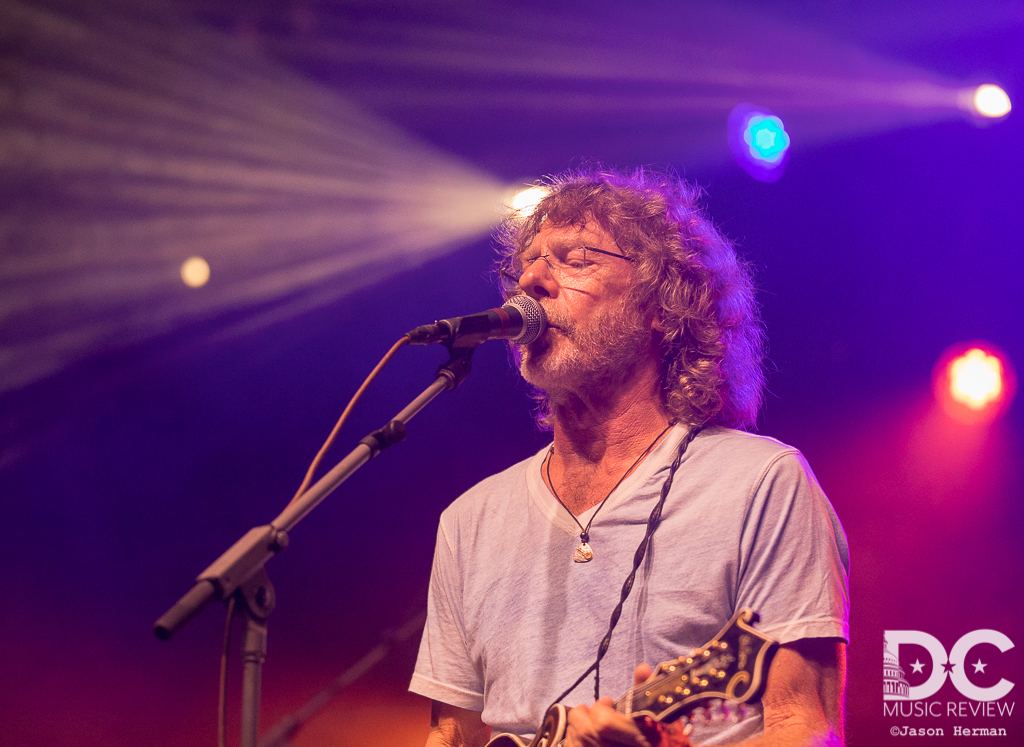
I'm lucky, you know, this week it's Big Sky and a week from tomorrow we'll be playing in Nashville for the Earth Day celebration and that's a big deal to me. Then, look what's coming around the corner then it's Merlefest, then before we know it, it's going to be Memorial Day weekend. I love this. That leads me into Telluride. So for me, it's the excitement and I, of course, I love my band - I learned to play with with the guys, they're my favorite musicians. We get to play and have fun but we get to see our friends and be part of this community that we're really happy to be in on.

KM: We talked a little bit about your musical influences, but I also absolutely must touch on how much of an influence you've been to so many other people. You've got how many years under your belt, three straight IBMA awards and then another one for mandolin player of the year. You guys have just about every accolade you could possibly get most likely. You've been named an influence by so many people - what does that mean to you as far as where you are, but also where you still want to go?
SB: Well it's hard to think of yourself in that way. Like if Sierra Hull cites me as an influence - well I think of her as my mandolin buddy (laughs). I don't know that one's hard to answer. It's because again, if I've influenced anybody, it's been great because guess what - I'm at the point now that if I've influenced some people, we're probably back at the point where I can now learn from them. So if I keep my my ears and my head open I can learn from them just the same as they did from me.
KM: Also, I want to talk about the Sam Bush movie which, I haven't seen the whole thing, but I saw the preview for it and I definitely want to check it out. It got so many awards - Best Documentary awards, Best Music Documentary at the Nashville Film Festival and then tons and tons more. A couple of the things that they showed in the preview and I can't remember who it was that said this part, but they asked you, "Are you the next Bill Monroe?" and you said, "No I'm the first Sam Bush." Then Del was on there and he's just so happy all the time and seems like such a nice guy. I see him talk and it's like it's almost like he can't not smile but he says, "There's only one Sam Bush," and then he starts to giggle, and he says, "and I really like to be around him." (laughs)
SB: (laughing) That's about the last statement in the in the film.
KM: Being able to have a movie made about you and then have so many people on there - you see Paul Hoffman on there saying when an influence you are to him and you've got countless people saying how great it is that they've been able to work with you or they've been able to learn things from you and share a stage with you. That might maybe make it easier to talk about how much of an influence you are. To have a documentary like that made and be able to have so many people participate in it. I want to just see what your feeling on that is and if you were surprised by how many people were on there or if you're just incredibly valuing everything that is in entailed in that.
SB: The most gratifying part about that for me was how many people were willing to come give their time to do that. When you see their 30 seconds in that clip, they probably took a couple hours to do it and however many hours out of their day was spent in getting through the whole process of filming and so on. So that in itself, when I first saw the film, it's like this over whelming sense of gratitude to my friends for being willing to go through that.
You mentioned Paul Hoffman - I mean. we've become friends and Greensky has cited me as an influence, but now they're just my pals and we're all on the same gig (laughs). Then of course where that film first debuted - by the way I've learned to call it the film, people told me, 'You gotta say film' - when it was first shown at the theater, we saw it at the Nashville Film Festival, so that was a very strange sensation sitting in the theater with some of many of the people who had spoken in the film. Sitting in the theater with with Emmy Lou (Harris) and John Oates, that was very surreal (laughs).Without trying to sound really dumb, it's almost as if you're sitting at your own wake.
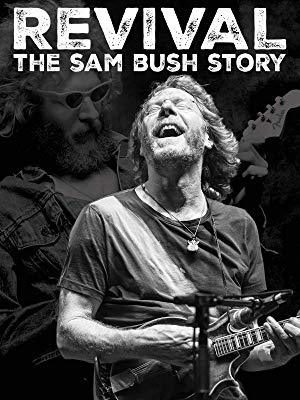

KM: Right - it's like everyone's talking about you like you're not there, but there you are.
SB: (laughs) Yeah. Once you get over the embarrassment of watching yourself talk on screen - I mean you recall the first time you ever heard your voice come back on a tape recorder, right? You think, 'That's not what I sound like!' But other than the awkwardness of listening to people saying compliments and things, I hope what people take away from it is that as you sit and go through this documentary, you'll come away from it just to know that I am sincere in my love of music and and really my love of my other bands and pickers.
KM: Sam thanks so much for doing this and we'll see you at Delfest!
Performance Details
Performance Details
Performance
Details
Sam Bush will be performing at DelFest on :
- 8:10 PM - 9:40 PM May 26 at Grandstand Stage
- 12:15AM May 27 with The DelFest Chaser with The Travelin' McCourys at the Music Hall
May 23 - 26, 2019
12th Annual DelFest
DelYEAH!
Allegany County Fairgrounds
11400 Moss Ave. Cumberland, MD 21502
Single Day & Multi Day Passes Available
Kids & Teen Passes Also Available
$20-235 + Fees
See Ticket Page For Prices
